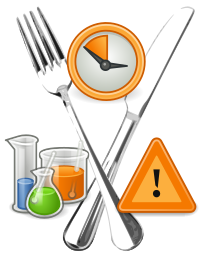
Photo from wikipedia
Cronobacter is an emerging bacterial pathogen associated with infections such as necrotizing enterocolitis, sepsis, and meningitis in neonates and infants, related to the consumption of powdered infant formula. In addition,… Click to show full abstract
Cronobacter is an emerging bacterial pathogen associated with infections such as necrotizing enterocolitis, sepsis, and meningitis in neonates and infants, related to the consumption of powdered infant formula. In addition, this bacterium can also cause infections in adults by the ingestion of other foods. Thus, this review article aims to report the occurrence and prevalence of Cronobacter spp. in foods of plant origin, as well as the possible sources and routes of contamination in these products, and the presence of pathogenic strains in these foods. Cronobacter was present in a wide variety of cereal-based foods, vegetables, herbs, spices, ready-to-eat foods, and foods from other categories. This pathogen was also found in cultivation environments, such as soils, compost, animal feces, rice and vegetable crops, as well as food processing industries, and domestic environments, thus demonstrating possible contamination routes. Furthermore, sequence types (ST) involved in clinical cases and isolates resistant to antibiotics were found in Cronobacter strains isolated from food of plant origin. The identification of Cronobacter spp. in plant-based foods is of great importance to better elucidate the vehicles and routes of contamination in the primary production chain and processing facility, until the final consumption of the food, to prevent infections.
Journal Title: Critical reviews in food science and nutrition
Year Published: 2022
Link to full text (if available)
Share on Social Media: Sign Up to like & get
recommendations!